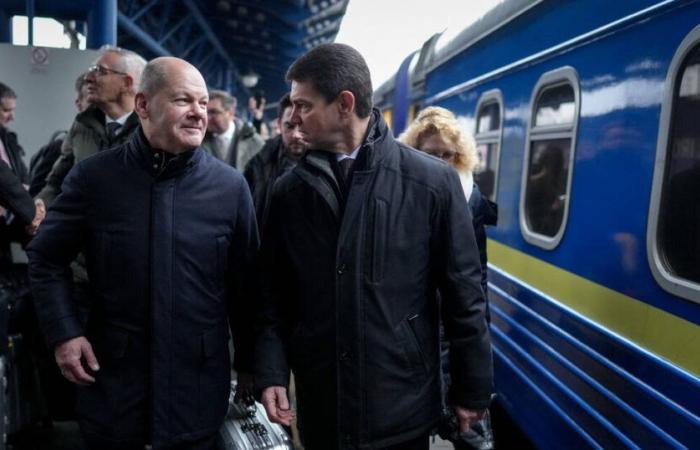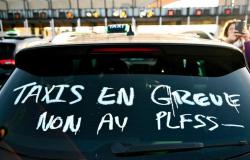
On a surprise visit to the Ukrainian capital this Monday, December 2, the German Chancellor announced new aid amounting to 650 million euros. All in the middle of the campaign for the early legislative elections in Germany.
“Germany will remain the main support of Ukraine in Europe,” assured Olaf Scholz this Monday, December 2 during a surprise visit to Kyiv. From the Ukrainian capital, the German head of state announced additional military aid to the country, amounting to 650 million euros. The German Chancellor expressed his “solidarity” with Kyiv, insisting that Ukraine can still “count” on Berlin.
His last visit to Ukraine dates back to June 2022, a few months after the start of the invasion on February 24, notably in the company of French President Emmanuel Macron. “For more than 1,000 days, Ukraine has been heroically defending itself against the ruthless Russian war of aggression”he stressed.
Tensions are high between Moscow and the West after Kyiv fired American and British missiles on Russian soil and Russia responded by firing an experimental hypersonic missile on Ukraine, while making threats nuclear. Ukrainian President Volodymyr Zelensky assured Sunday that his country needed more weapons and security guarantees from NATO before possible negotiations with Russia.
Electoral ulterior motives
This surprise trip by Olaf Scholz to Ukraine is not devoid of electoral ulterior motives in Germany, while the campaign for the legislative elections of February 23, 2025 has begun. The chancellor seeks to position himself as the champion of peace, and the supporter of restraint to avoid an escalation between the West and Russia.
During a speech marking his entry into the campaign on Saturday November 30, Olaf Scholz promised to keep “cool head” on the subject of the war in Ukraine denouncing the hawkish overtones of his conservative opponent Friedrich Merz, a supporter of increased aid to Ukraine. His rival is in favor under certain conditions of a delivery of German missiles to Kyiv, to strike deep into Russian territory. A red line for Olaf Scholz, who opposes his American, French and British allies on this point, in a pacifist country crossed by a significant pro-Russian current of opinion.





